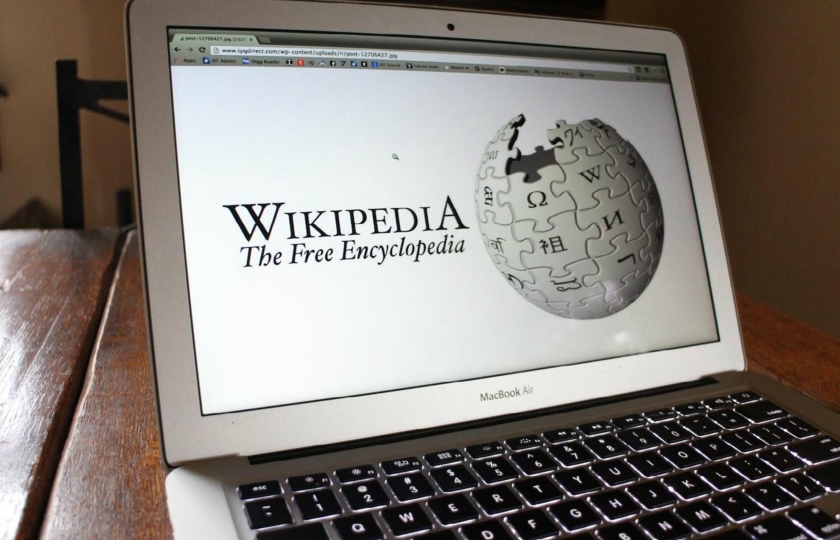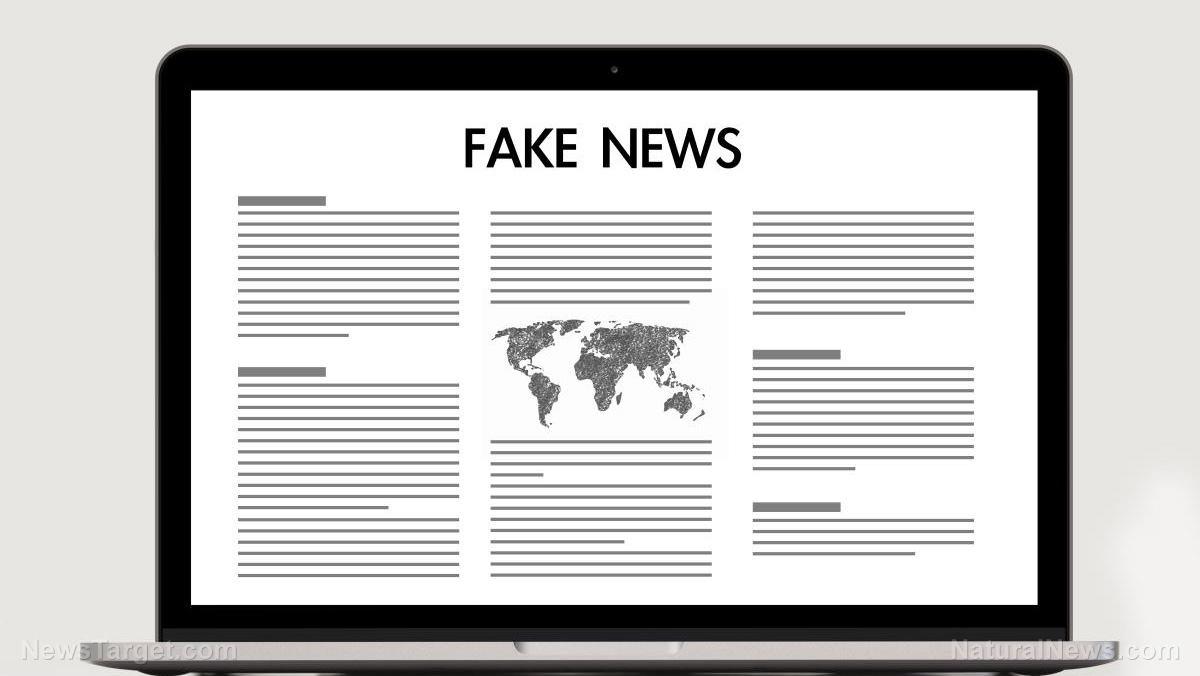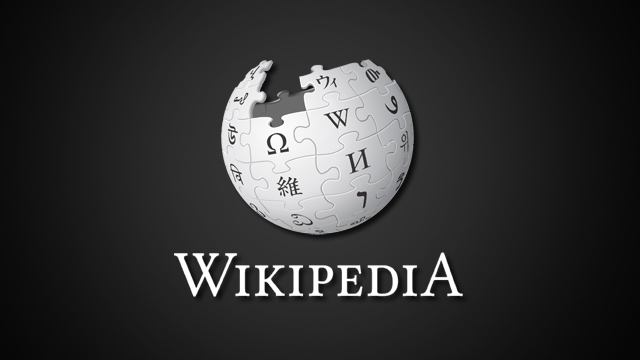Before anyone supports, reads, contributes or believes anything on Wikipedia, they might stop to think why a site supposedly dedicated to collecting and sharing the sum total of the world’s knowledge has seen fit to censor so much of it, and marvel at who these apparently omnipotent Skeptics are that they feel they know more than the National Academy of Sciences, Harvard Medical School, JAMA, Nature, and every other prestigious scientific institution and publication that has stamped its imprimatur on holistic and complementary therapies, testifying to their value and validity. Wikipedia’s ruling elite know that millions more people visit its site than will ever read a study, no matter how important, in any scientific journal, even the most prestigious. Their decision to deliberately conceal the most promising advances in evidence-based medicine today – and to viciously attack those who attempt to bring these advances to the public’s attention – is anti-scientific in the extreme. Anyone engaging with real science knows there is always more to discover and that even the most solid theories are never set in stone. The Skeptics’ hollow parody of “science” is just religious dogma for secularists. They have truly set themselves up as the modern Inquisition, and it is enlightened medical professionals willing to look beyond their rigid dogma who are being burnt at the stake.
Jimmy Wales and Wikipedia’s hate campaign against holistic healing
04/20/2019 / By News Editors

From the mind of Jimmy Wales, to the alternative health community: “What we won’t do is pretend that the work of lunatic charlatans is the equivalent of “true scientific discourse”. It isn’t.”
(Article by Gary Null and Helen Buyniski republished from PRN.fm)
One of the most exciting and successful healing modalities is energy medicine. It exists in different forms known by different names (emotional freedom techniques, tapping, biofield, energy healing, energy psychology, psychoneuroimmunology, electrodermal therapy, applied kinesiology, therapeutic touch). There are thousands of practitioners, and articles have been published about its efficacy in peer-reviewed, highly-respected journals. There is a large body of literature listed on PubMed and the National Library of Medicine. Practitioners have seen remarkable improvements in pain management, which is especially relevant as there’s currently a fully-recognized opioid epidemic in the United States, where more people died – over 70,000 in 2017 – of overdoses than all American casualties in the Vietnam War, exceeding all other accidental causes of death including car accidents and gunshots. Because even non-opioid pain relievers have an unreasonable mortality risk – aspirin can cause bleeding, acetaminophen causes liver toxicity, and NSAIDs can cause digestive problems – any therapy that is natural and nontoxic that can alleviate suffering is one we should take seriously.
Medicine is aware of and frequently uses different modalities of energy. One practitioner is Dr. Rick Leskowitz, a medical doctor and board-certified psychiatrist specializing in energy psychiatry and pain management who has published numerous articles in peer-reviewed literature. He practiced at Spaulding Rehabilitation Hospital in Boston, which advocates a body-mind-spirit approach, and was a highly respected noncontroversial instructor at the Department of Psychiatry at Harvard Medical School, where he directed the hospital’s Integrative Medicine Task Force; he also held appointments at Tufts Medical School. He has organized several conferences in Complementary and Alternative Medicine and rehabilitation and is one of the acknowledged leaders in the field. In short: he is an expert. Yet Jimmy Wales has attacked Leskowitz and thousands of other clinicians, many board certified, who asked for fairness and proof in coverage of energy psychology on Wikipedia instead of the ad hominem, vicious attacks from the Skeptic editors currently dominating medical articles on that site. When there are thousands of individuals using and benefiting from a therapy, when doctors and patients both acknowledge its benefits and the peer reviewed literature and studies also acknowledge its benefit, how can Wikipedia’s editors claim there is no scientific merit?
Yet Wales, supported by a small coterie of Skeptics, says all of these people, all their patients, all their studies, all of their peer reviewed literature, all of the respected scientific publications are all wrong, even delusional. Wales goes a step further in his response to the petition for fair and neutral, scientifically-informed coverage from the Association for Comprehensive Energy Psychology (ACEP) and says:
“No, you have to be kidding me. Every single person who signed this petition needs to go back to check their premises and think harder about what it means to be honest, factual, truthful. Wikipedia’s policies around this kind of thing are exactly spot-on and correct. If you can get your work published in respectable scientific journals – that is to say, if you can produce evidence through replicable scientific experiments, then Wikipedia will cover it appropriately. What we won’t do is pretend that the work of lunatic charlatans is the equivalent of “true scientific discourse”. It isn’t.”
Who should we believe? Is Jimmy a board-certified psychiatrist? Are any of the Skeptics? Have any of them published positive results in peer-reviewed literature from well-designed randomized controlled trials, the gold standard of clinical studies? Have they presented their progress before large scientific conferences? The answer is no. All that this group has is their unmitigated disdain and loathing of something they seem incapable of and uninterested in understanding – and yet they condemn, attack, and vilify those who would investigate this promising field, smearing these scientific pioneers with impunity. We will now cite some of the peer-reviewed literature that it’s obvious Jimmy Wales and his Skeptic friends and editors either have not sought out or have chosen to discount in spite of its undeniable merit. The following articles have all been published in respected peer-reviewed scientific journals and are available on the government’s own library of medicine, PubMed.
A 2016 review of the literature found that while most “novel interventions” for PTSD treatment have not demonstrated efficacy, 4 mind-body techniques (acupuncture, emotional freedom technique, mantra-based meditation, and yoga) had “moderate quality evidence from mostly small- to moderate-sized randomized clinical trials” and were worthy of further study. Metcalf, O., Varker, T., Forbes, D., Phelps, A., Dell, L., DiBattista, A., … & O’Donnell, M. (2016).
Efficacy of Fifteen Emerging Interventions for the Treatment of Posttraumatic Stress Disorder: A Systematic Review. Journal of Traumatic Stress, Online first Jan 7. DOI: 10.1002/jts.2207
One such trial was conducted in 2012. In a study of vets with PTSD in which the experimental group received six hour-long tapping treatments, 86% no longer met the criteria for the disorder after six sessions. Only 4% of control group no longer met the criteria. Those in the experimental group also demonstrated improvements in depression, “mental quality of life,” and cynicism. Jain S1, McMahon GF, Hasen P, Kozub MP, Porter V, King R, Guarneri EM. Healing Touch with Guided Imagery for PTSD in returning active duty military: a randomized controlled trial. Mil Med. 2012 Sep;177(9):1015-21.
Another review of randomized controlled trials of tapping found “strong effect sizes and other positive statistical results that far exceed chance after relatively few treatment sessions,” satisfying APA criteria for evidence-based treatment for anxiety-based conditions including PTSD.
Feinstein, D. (2012). Acupoint stimulation in treating psychological disorders: Evidence of efficacy. Review of General Psychology, 16(4), 364-380. http://dx.doi.org/10.1037/a0028602
A 2017 randomized controlled trial comparing energy psychology to cognitive-behavioral therapy found the former to be at least as effective in treating patients with agoraphobia, indicating that it “may be an efficient treatment.” Irgens AC1, Hoffart A2,3, Nysæter TE4, Haaland VØ3,5, Borge FM2, Pripp AH6, Martinsen EW7, Dammen T8 Thought Field Therapy Compared to Cognitive Behavioral Therapy and Wait-List for Agoraphobia: A Randomized, Controlled Study with a 12-Month Follow-up. Front Psychol. 2017 Jun 20;8:1027. doi: 10.3389/fpsyg.2017.01027.
One trial of Reiki’s effects on post-operative pain in knee surgery patients found statistically significant reductions in pain levels and was so successful the hospital actually established a Reiki program, training and certifying ten nurses in the therapy. Notte BB1, Fazzini C, Mooney RA. Reiki’s effect on patients with total knee arthroplasty: A pilot study. Nursing. 2016 Feb;46(2):17-23. doi: 10.1097/01.NURSE.0000476246.16717.65.
Another review of biofield therapy’s effectiveness in mental health treatment found found “biofield therapies show safety and promise in reducing anxiety, improving mood, and cultivating mental health and wellness.” Mangione, L., Swengros, D., Anderson, J. G. (2017). Mental Health Wellness and Biofield Therapies: An Integrative Review. Issues in Mental Health Nursing, 2017. DOI: 10.1080/01612840.2017.1364808
Energy psychology compared favorably with other modalities in treating anxiety in particular – a 2016 meta-analysis found EFT is associated with a “significant treatment effect when patients are compared with baseline or compared with control conditions” and “may possess significant practical advantages to public health outcomes” compared with costlier psychotherapeutic interventions. Clond, M. (2016). Emotional Freedom Techniques for anxiety: A systematic review with meta-analysis. J Nerv Ment Dis.2016 May; 204(5):388-95. doi: 10.1097/NMD.0000000000000483
Several systemic reviews have come to the same conclusion. A 2014 survey of randomized controlled trials of Emotional Freedom Techniques (tapping) found improvements in depression, anxiety, and overall symptom severity. Kalla, M. (2014). The effectiveness of Emotional Freedom Techniques (EFT) for improving the physical, mental, and emotional health of people with chronic diseases and/or mental health conditions: a systemic review protocol. JBI Database of Systemic Reviews & Implementation Reports, 12(2).
A 2015 meta-analysis found a moderate effect size for EFT across 18 RCTs. Gilomen, S. A. & Lee, C. W. (2015). The efficacy of acupoint stimulation in the treatment of psychological distress: A meta-analysis. Journal of Behavior Therapy and Experimental Psychiatry, 48,140-148.
Another study found evidence that “one-time, community leader facilitated TFT interventions may be beneficial with protracted PTS in genocide survivors.” Dunnewold, A.L., 2014. Thought field therapy efficacy following large scale traumatic events. Curr. Res. Psychol., 5:34-39. http://thescipub.com/abstract/10.3844/crpsp.2014.34.39 –
Even Psychiatric Times admitted that conventional treatment’s failures were a good argument for “effective conventional and complementary and alternative medicine (CAM) interventions aimed at preventing PTSD and treating chronic PTSD.” Lake, J. (2014). A Review of select CAM modalities for the prevention and treatment of PTSD. Psychiatric Times;July 25, 2014. http://www.psychiatrictimes.com/integrative-psychiatry/review-select-cam-modalities-prevention-and-treatment-ptsd
An early (2008) review of the then-emerging discipline found that despite a relative paucity of trials, energy psychology had “reached the minimum threshold for being designated as an evidence-based treatment,” including APA division 12 criteria, for specific phobias and weight loss and showed great promise for other psychological conditions. Feinstein, D. Energy psychology: A review of the preliminary evidence. Psychotherapy (Chic). 2008 Jun;45(2):199-213. doi: 10.1037/0033-3204.45.2.199.
Energy psychology is showing great promise in treating diseases associated with aging, as well. A 2017 review of the literature “supports the clinical efficacy of mind-body practices in improving behavioral and psychological symptoms exhibited by individuals with dementia.” Anderson JG, Rogers CE, Bossen A, Testad I, Rose KM. Mind-Body Therapies in Individuals With Dementia: An Integrative Review. Res Gerontol Nurs. 2017 Nov 1;10(6):288-296. doi: 10.3928/19404921-20170928-01.
An earlier study of healing touch on Alzheimer’s patients produced significant improvements in cognitive function, mood, and depression – while a control group not receiving the treatment declined from the baseline as is typical with the disease. Lu DF1, Hart LK, Lutgendorf SK, Oh H, Schilling M. Slowing progression of early stages of AD with alternative therapies: a feasibility study. Geriatr Nurs. 2013 Nov-Dec;34(6):457-64. doi: 10.1016/j.gerinurse.2013.07.003. Epub 2013 Aug 22.
Healing touch produced significant improvements in pain levels and mobility inpatients with osteoarthritis, effects which were sustained three weeks later, leading researchers to conclude that “biofield therapies could be effective non-pharmacological adjuncts to treatment of OA.” Lu DF1, Hart LK, Lutgendorf SK, Perkhounkova Y. The effect of healing touch on the pain and mobility of persons with osteoarthritis: a feasibility study. Geriatr Nurs. 2013 Jul-Aug;34(4):314-22. doi: 10.1016/j.gerinurse.2013.05.003. Epub 2013 Jul 5
Psychological disorders of all stripes seem to benefit. A review of 14 studies found “mindfulness meditation effectively decreases binge eating and emotional eating in populations engaging in this behavior.” Katterman SN1, Kleinman BM2, Hood MM1, Nackers LM1, Corsica JA Mindfulness meditation as an intervention for binge eating, emotional eating, and weight loss: a systematic review. Eat Behav. 2014 Apr;15(2):197-204. doi: 10.1016/j.eatbeh.2014.01.005.
EFT has outperformed traditional treatments for depression. A review of 21 studies found it was “effective in reducing depression in a variety of populations and settings”; Moreover, the effect size for EFT was “larger than that measured in meta-analyses of antidepressant drug trials and psychotherapy studies,” and “patients maintained their gains over time.” Nelms, J. & Castel, D. (2016). A systematic review and meta-analysis of randomized and non-randomized trials of Emotional Freedom Techniques (EFT) for the treatment of depression. Explore: The Journal of Science and Healing, 12(6), 416-26. http://dx.doi.org/10.1016/j.explore.2016.08.001
Sebastian, B., & Nelms, J. (2017). The effectiveness of Emotional Freedom Techniques in the treatment of posttraumatic stress disorder: A meta-analysis. Explore: The Journal of Science and Healing, 13(1), 16-25. http://dx.doi.org/10.1016/j.explore.2016.10.001 – a systematic review of randomized controlled trials (7 were found) that met the gold-standard criteria. “A large effect was found for EFT treatment of PTSD,” which was found to be “efficacious and reliable as a treatment for PTSD in time frames ranging from four to ten sessions. EFT is safe and can be used as a self-help practice as well as a primary evidence-based treatment for PTSD.”
An exhaustive review of 60+ research articles in peer-reviewed journals acknowledged the skepticism of the greater medical community at reports of “a staggering 98% efficacy rate with the use of this procedure from psychological distress (posttraumatic stress disorder, phobias, anxiety, depression, etc) to physical conditions (asthma, fibromyalgia, pain, seizure disorders, etc) to performance issues (athletic, academic), but points to “the proliferation of double-blind randomized controlled studies, the gold standard of research investigation that demonstrates a high evidence base for EFT.” Rancour, P.(2016). The Emotional Freedom Technique: Finally, a unifying theory for the practice of holistic nursing, or too good to be true? J Holist Nurs. 2016 May 11. pii: 0898010116648456. https://www.ncbi.nlm.nih.gov/pubmed/27170647
Because this list – which includes just a few of more than 215 studies listed on ACEP’s website, to say nothing of over 13,000 to be found on PubMed – includes not only primary studies but also meta-analyses and reviews, they are more than adequate to meet Wikipedia’s MEDRS (short for “medicine reliable sources”) criteria – the highest standard of “reliable sources” by which Wikipedia supposedly measures all contributions to its medical articles. That this large body of literature is dismissed out of hand by Wikipedia’s editorial elite is puzzling, if one thinks of Wikipedia’s editors as merely a disparate group of individuals interested in building a neutral, fact-based encyclopedia. Only when one understands that the stewards of Wikipedia are engaged in a deliberate campaign of biased suppression of truth does their refusal to allow these top-quality articles into their encyclopedia make sense.
Who are these Skeptics who have appointed themselves the gatekeepers of lay medical knowledge? More people get their medical information through Wikipedia than through even the most prestigious scientific journals, after all, and Wikipedia prides itself on being a one-stop knowledge-shop for the rest of the internet. For this reason, it’s imperative to examine who these people are who have set themselves up as the modern Oracle of Delphi, declaring unilaterally what is and is not true according to an opaque and constantly-shifting set of rules.
Even the gatekeepers of orthodox medicine have been forced to grudgingly admit that energy medicine is a promising and credible discipline worthy of further study. The American Psychological Association has, since 2012, permitted ACEP to deliver continuing education credits for psychologists – a process that took five years of appeals, but in which they eventually prevailed, due to the strength of their science. Biofield therapies, after all, are not new. Energy psychology by its various names is merely one of the first attempts by western medicine to use a force the rest of the world has long believed is indispensable to healing – prana, or chi, has been central to Traditional Chinese Medicine for thousands of years. “In Western medicine we’re so interested in breaking everything down that we end up looking at people like they were machines. But this whole energy process, I think, is really the link I think between mind and body,” says Leskowitz.
Wikipedia’s Skeptic elite, however, are unwilling to accept that there is any validity to any form of complementary and alternative medicine. Their dogmatic rigidity goes far beyond the institutional caution of the National Academy of Sciences or other august bodies set up as gatekeepers to the medical establishment. Indeed, they feel they know better than those revered institutions. At Wikipedia, there is no such thing as evidence-based alternative healing: there is only orthodoxy. But our deep experience interviewing thousands of physicians over the decades challenges that concept. Physicians risk their income and reputation by forgoing the standard operating procedures of the medical-industrial complex and trying other therapies – yet they do so anyway. If orthodox medicine was all that it was supposed to be, there would be no need to have any form of alternative approach. Indeed, in conversations with so many physicians, we have found that they only sought alternative protocols when the treatments they were conditioned to try didn’t work. Because they felt the patient was not benefiting, or even being harmed, they risked their own standing in the medical community to seek truths elsewhere.
Wikipedia would have us believe that there is only one truth in all of healthcare: the orthodox approach, whether pharmaceuticals or surgery or some other technology, is the answer to every single disease. If it doesn’t help the patient, or they get worse, it’s not the doctor’s fault, or the medication or protocol’s fault – it’s the patient’s fault. In that rigidly reductionistic Newtonian inquisition mindset, there’s not even a desire or will to set up gold standard double-blind placebo-controlled studies to prove or disprove every single point of treatment.
Science, however – legitimate, independent science that isn’t influenced or corrupted by proprietary interests or self-serving agendas – has shown just the opposite to be true, with hundreds of thousands of studies published by some of the most revered institutions and journals in the world, written by some of its leading scientists and scholars. In some cases, there are tens of thousands of studies showing the benefit of a single nutrient like curcumin or vitamin C – hence the physician or therapist who is using these is relying upon sound qualified peer reviewed science, as well as their own intrinsic clinical observations. Time and again, physicians will say, I was able to help a patient using this therapy whereas I had no success with what I was taught in medical school. We’ve taken the time over years to study the library of medicine and the National Academy of Sciences archives on these issues, and we’re absolutely dumbfounded that such a mountain of evidence can be ignored by Wikipedia. What qualifications do these editors possess that sets them above Harvard Medical School, or Yale, Columbia, Princeton? Above journals like Nature and Science and the NEJM?
Indeed, the other side of the question becomes: why aren’t more doctors using these therapies? It’s not a question of whether there is legitimate science to prove that a given therapy works – we can see the overwhelming abundance of evidence, but that’s only half the equation. The other half is that JAMA itself – one of the most prestigious medical journals published today – has acknowledged the third leading cause of death in the US is iatrogenesis. Our careful breakdown of the statistics on medically-induced death shows the number is far higher. Using conservative figures, we found close to 1 million iatrogenic deaths occur every year, a truly staggering figure that is more than the casualties from heart disease or cancer, the CDC’s two leading causes of death. Because the CDC has no death certificate code for iatrogenic causes, many avoidable deaths-by-medicine are lost in paperwork, classified as something else and filed away, only for the fatal mistake to be repeated on another hapless patient in the future. Orthodox medicine is responsible for these deaths, for the use of medications that should never have been approved or medical procedures that should never have persisted in practice after the knowledge they were no miracle treatments emerged. Jimmy Wales and his Skeptic hordes refuse to acknowledge either side of this equation: both the vast mountains of evidence that these therapies work, published in scientific journals, and the equally vast quantities of evidence against much of established medicine. We absolutely support and respect emergency medicine – our system does urgent care well, providing truly top-notch outcomes for patients suffering heart attacks, strokes, burns, and other sudden-onset life-threatening conditions. But these represent only about 12% of modern care. The vast majority of chronic care, including cancer, heart disease, mental illness, and inflammatory conditions, fails miserably.
Extrapolating our figure of 987,507 iatrogenic deaths per year over the last 30 to 40 years, we see tens of millions of deaths that were avoidable, hundreds of millions of injuries that were preventable. Up to this moment, there has been no concerted effort to change or even challenge the protocols and procedures the therapies and pharmacological approaches to reverse this deadly trend. Why haven’t the Skeptics been as adamant in their criticism and their scathing personal attacks against doctors at major institutions who promote the use of therapies that don’t work and are harmful? At the same time they’re condemning therapies that have worked. Here we are faced with the dilemma of the whistleblower – an honest employee working in a corporation or government agency that finds corruption and malfeasance and reports it to the appropriate authorities, only to be criminally charged and punished for violating corporate or government secrecy in order to report a much greater crime. The whistleblowers go to jail but the people committing the crimes continue amassing huge sums of money and power. Wikipedia refuses to acknowledge how bad medicine is, then refuses to acknowledge how it could be improved to actually help people. What motivates this type of denialism, this aggressive pursuit of vengeance against all who would call out the medical system for its abuses? Why have the media and the government allowed such dishonest behavior in the public sphere?
Wikipedia’s editors hide behind anonymous usernames, yet we trust them as the stewards of medical knowledge. This is preposterous. A medical publication would never publish an article with anonymous authors, its source of funding concealed, its authors’ affiliations left off the page. What if every scientific journal or body operated in such obscurity? People would be outraged, and rightfully so. The usurpation of this medical authority by a totally unaccountable group of ideologically-driven individuals operating in the shadows is surely the most remarkable intellectual deception in American history.
Read more at: PRN.fm
Tagged Under: alternative medicine, bias, biased, Big Pharma, Big Tech, Collusion, corruption, deception, disinfo, evil, Fact Check, fake news, Glitch, health, Jimmy Wales, lies, Naturopathy, quackery, skeptics, tech giants, Wikipedia, Wikipedia scam













